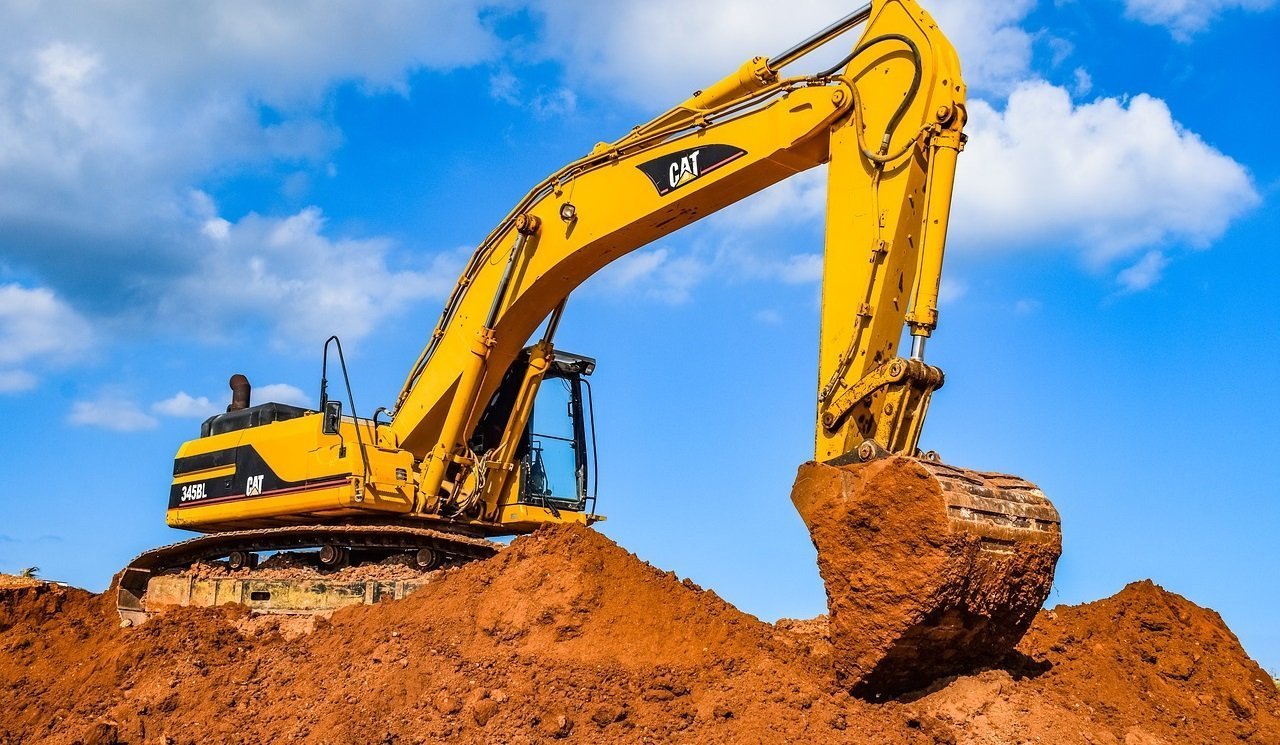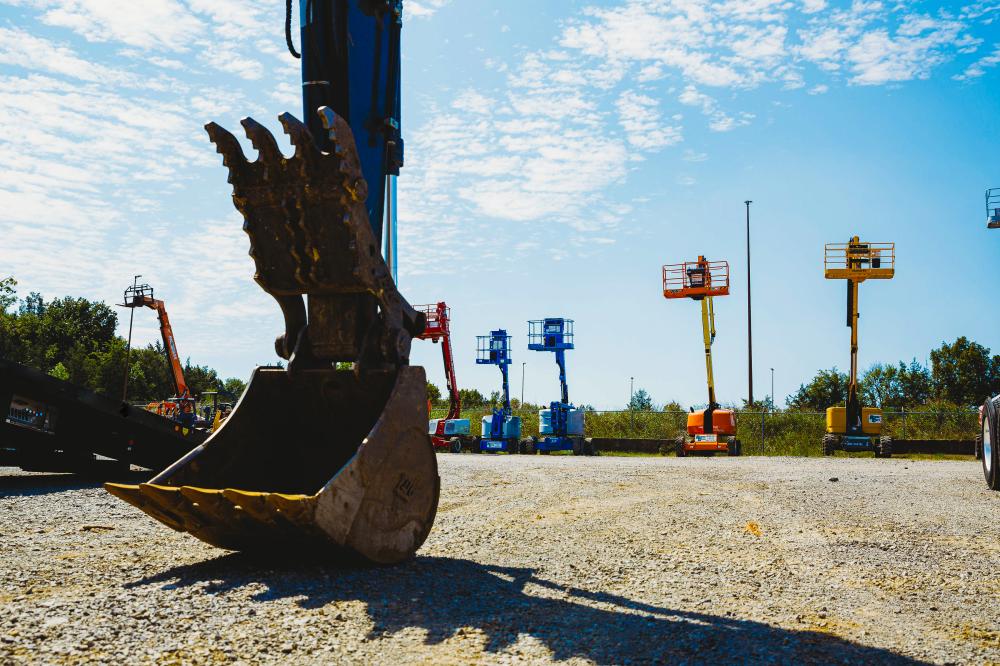Crucial Tips for Handling Heavy Tools Rental Contracts and Logistics Efficiently
Properly handling heavy tools rental agreements and logistics is critical for the success of any kind of job that counts on these resources. A comprehensive understanding of rental terms, coupled with exact analysis of equipment demands, lays the foundation for favorable settlements. Furthermore, working with transportation logistics and preparing for ongoing maintenance can dramatically lower unforeseen costs and hold-ups. Nonetheless, the complexities of these elements frequently present obstacles that call for calculated insight. What are the crucial factors to consider that can change these possible pitfalls right into possibilities for efficiency and cost-saving?
Understand Rental Terms
Understanding rental terms is important for effective heavy devices monitoring. Familiarity with the details terms of a rental contract can dramatically affect functional effectiveness and cost-effectiveness. Key parts generally consist of rental period, repayment framework, and upkeep duties. The rental duration defines the duration for which the tools is rented, influencing budgeting and project timelines. Repayment structures commonly differ, encompassing daily, weekly, or month-to-month prices, which necessitate accurate calculations to prevent unforeseen expenses.
In addition, it is important to understand the upkeep obligations detailed in the contract. Normally, rental firms maintain the tools, yet recognizing that is accountable for regular checks and repair services is essential to avoid functional disturbances. Additionally, terms may consist of conditions concerning liability for damages or theft, which can have severe financial effects otherwise appropriately recognized.

Assess Equipment Requirements
Analyzing equipment needs is a crucial step for any type of job manager intending to maximize resource allocation and improve functional efficiency. This procedure includes a complete evaluation of the project needs, including certain jobs, timelines, and the sort of devices essential to accomplish desired results.
Begin by determining the extent of the project and the jobs that will certainly be executed. Consider variables such as the surface, the scale of operations, and any potential challenges that might influence equipment selection. Involving with team participants that will certainly operate the equipment can offer beneficial understandings into sensible demands and choices.

Following, assess the capability and abilities of available equipment options. It is important to match the best equipment to the tasks handy, ensuring that it can deal with the anticipated work without compromising security or performance.
Furthermore, consider the rental period and regularity of usage. Recognizing these elements can help identify whether buying or leasing is one of the most cost-efficient option. By performing an extensive assessment of equipment requirements, task supervisors can make educated decisions that cause enhanced efficiency and decreased operational costs.
Negotiate Successfully
Once the tools requirements are clearly identified, the following action includes reliable settlement with rental companies to protect favorable terms. Begin by looking into different rental companies to understand their rates structures, stock accessibility, and credibility.
When approaching the arrangement table, be clear regarding your demands, consisting of the kind of equipment, rental duration, and any additional solutions you may require. This transparency allows rental companies to give tailored services that can meet your specific requirements (mini excavator rental). Don't be reluctant to ask for discounts, particularly for lasting rentals or bulk orders, as several companies agree to supply concessions to protect bigger agreements
These elements can dramatically affect the overall expense and must be explicitly outlined in the rental contract. Make certain that all agreed-upon terms are documented in composing to protect against misunderstandings and safeguard your rate of interests throughout the rental duration.
Coordinate Transportation Logistics
Collaborating transportation logistics is a vital facet of taking care of hefty equipment rental contracts. Effective transportation makes sure that more helpful hints devices is supplied in a timely manner and in optimal condition, therefore minimizing downtime and enhancing project effectiveness. To achieve this, it is vital to develop an extensive logistics prepare that lays out the entire transport process from pickup to distribution.
Begin by analyzing the particular transport needs based upon the type and size of the devices included - boom lift rental. Engage with reliable transport carriers that concentrate on hefty devices to guarantee they possess the essential competence and devices, such as flatbed vehicles or specialized trailers. Discuss factors such as weight limits, course constraints, and required permits to stay clear of unanticipated hold-ups
Furthermore, keep open interaction with both the rental company and the transportation supplier to collaborate schedules efficiently. Validate all information, including pick-up and drop-off times, to make certain every person is straightened and prepared. Establish contingency strategies to deal with any potential disruptions, such as damaging weather or web traffic problems, which might ditch diggers near me influence the transportation timeline. By thoroughly collaborating transportation logistics, you can copyright the stability of your rental agreement and facilitate smooth project implementation.
Plan for Upkeep and Support

Additionally, it is crucial to connect directly with the rental service provider regarding upkeep duties. Some contracts might include maintenance as component of the rental solution, while in various other cases, the onus might fall on the occupant. Understanding these terms will certainly aid avoid unanticipated costs and obligations.
On top of that, having accessibility to technological support can be very useful. Make sure that the rental company provides 24/7 assistance or an emergency situation get in touch with, permitting for quick resolution of any devices problems. Educating your team on proper equipment use and regular checks can likewise substantially boost functional efficiency.
Final Thought
To conclude, reliable monitoring of heavy equipment rental agreements and read here logistics depend upon a complete understanding of rental terms, precise assessment of devices requirements, and skilled arrangement abilities. Working with transport logistics and preparing for upkeep better boost operational effectiveness. By carrying out these methods, organizations can reduce risks, control expenses, and guarantee that projects proceed efficiently and within well established timelines. Highlighting clear communication with all stakeholders stays important in navigating the complexities of tools service and logistics administration.
Successfully managing heavy tools rental contracts and logistics is crucial for the success of any kind of project that relies on these sources. By extensively examining and recognizing these rental terms, organizations can make educated choices, reduce risks, and ensure that their heavy tools management lines up with job goals and monetary restraints.Collaborating transport logistics is an important facet of handling hefty tools rental agreements.In final thought, effective administration of hefty equipment rental agreements and logistics hinges on a complete understanding of rental terms, precise evaluation of devices demands, and proficient settlement abilities. Stressing clear communication with all stakeholders stays vital in browsing the complexities of equipment rental and logistics management.